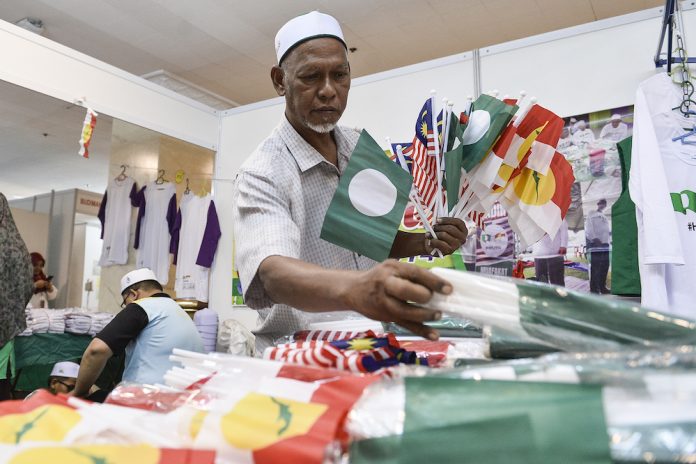
KUALA LUMPUR, Jan 29 — The open quarrel between PAS and MIC might hurt Muafakat Nasional and Perikatan Nasional’s chances in mixed ethnicity seats at the next general election, according to political analysts.
Simmering tensions between the two supposed allies boiled over this month over the Islamist party’s mentri besar of Kedah’s decision to forego a state holiday for the Thaipusam religious festival.
While analysts said the dispute was unlikely to have a major influence in Malay majority seats where the Islamist party typically contests, it would affect both coalition’s push for victory in the 15th general election.
“PAS made a very unwise decision (to remove the public holiday), so, yes if including this particular issue (on top of previous issues) it will affect PAS’ chances in the coming general election,” Universiti Teknologi Malaysia geostrategist Professor Azmi Hassan
“The core supporters of PAS (may be) very intact but PAS, whether in Perikatan Nasional or within MN, they need support of other (non-Malay) voters apart from core supporters,” said Azmi.
MN is an informal political charter between PAS and Umno. While MIC is not a part of this, it is vicariously linked via Umno that remains the lynchpin of former ruling coalition Barisan Nasional.
Although Indians account for just seven per cent of the country’s population, Malaysia’s fractured political landscape and the fierce contest expected in the 15th general election were likely to make all voting segments crucial to the eventual winner.
Universiti Sains Malaysia (USM) political science professor Ahmad Fauzi Abdul Hamid told Malay Mail that the controversy in Kedah suggested that PAS was confident it would be able to bank on Malay majority seats.
However, he said it could tip the balance in mixed seats or those in which the main Malay parties overlapped.
“But this scenario of split Malay votes apply almost solely to urban areas,” said Ahmad Fauzi who is also scholar-in-residence with Oxford Centre for Islamic Studies.
He also suggested that the PAS leadership might try to distance itself from the Kedah controversy by playing it down as the actions of the state chapter.
More likely, however, he said the open disdain PAS has shown towards MIC indicated that the Islamist party was not planning to venture beyond the Malay heartland that has been its bastion for decades.
After Kedah Mentri Besar Muhammad Sanusi Md Nor announced that the state would not observe a holiday for Thaipusam this year, MIC deputy president Datuk Seri M. Saravanan openly criticised the PAS leader and accused him of being a source of tension between their two parties.
Sanusi responded by mocking MIC’s threat to withhold support and accused the BN party of not supporting PAS in the previous general election.
Universiti Malaya’s associate professor Awang Azman Awang Pawi noted the questionable logic in attacking MIC for not supporting PAS in the previous election.
“But it’s quite strange why PAS has criticised MIC for not supporting the Islamist party, when PAS had in GE14 contested against BN,” said Awang Azman.
Unlike the other analysts, however, Awang Azman believed the way PAS was behaving towards MIC could cost it more than just minority support.
“At the same time, even the Malays themselves, many don’t agree with the mentri besar’s attitude and stand on matters that are perceived as not assessing a situation thoroughly.
“PAS’ position in Kedah is still quite weak at the moment and its future lies on whether this issue would be used against them in GE15 later,” he added.
Prior to revoking the public holiday for Thaipusam, Kedah MB Sanusi already caused a controversy — also involving MIC and the Indian community — over the demolition of Hindu temples in the state.
When criticised over the demolitions, he pointedly told critics in MIC and DAP not to be “drunk on the toddy of popularity”.
Toddy is a palm wine made from fermented palm sap. The drink was historically consumed by Indian labourers in colonial Malaya, leading to an unwelcome association with the community.
The targets of his remarks also interpreted his specific use of “toddy” as racially motivated.


